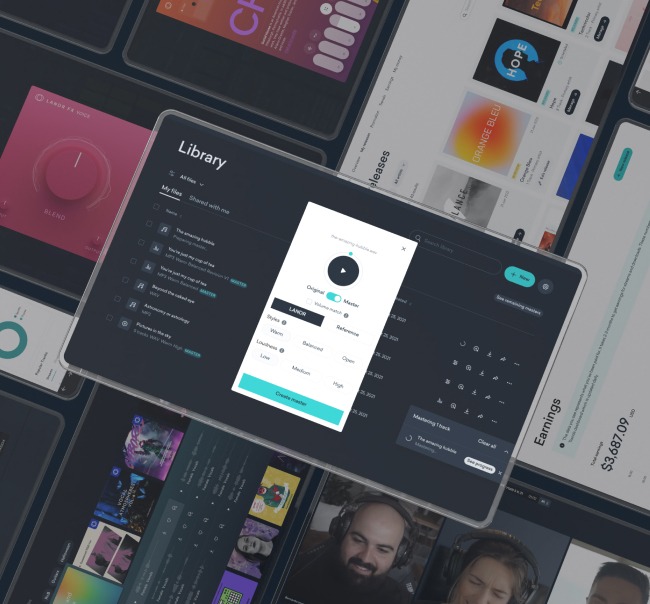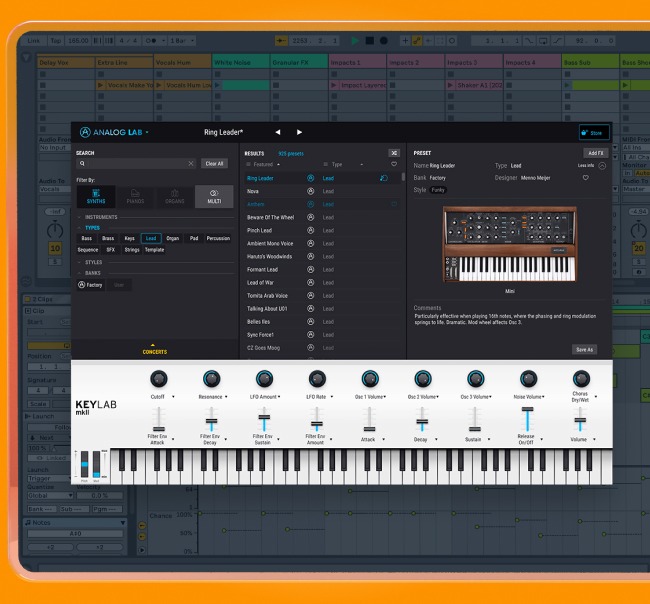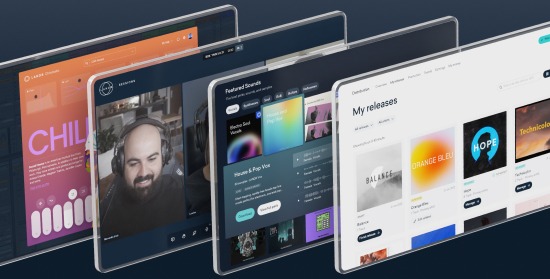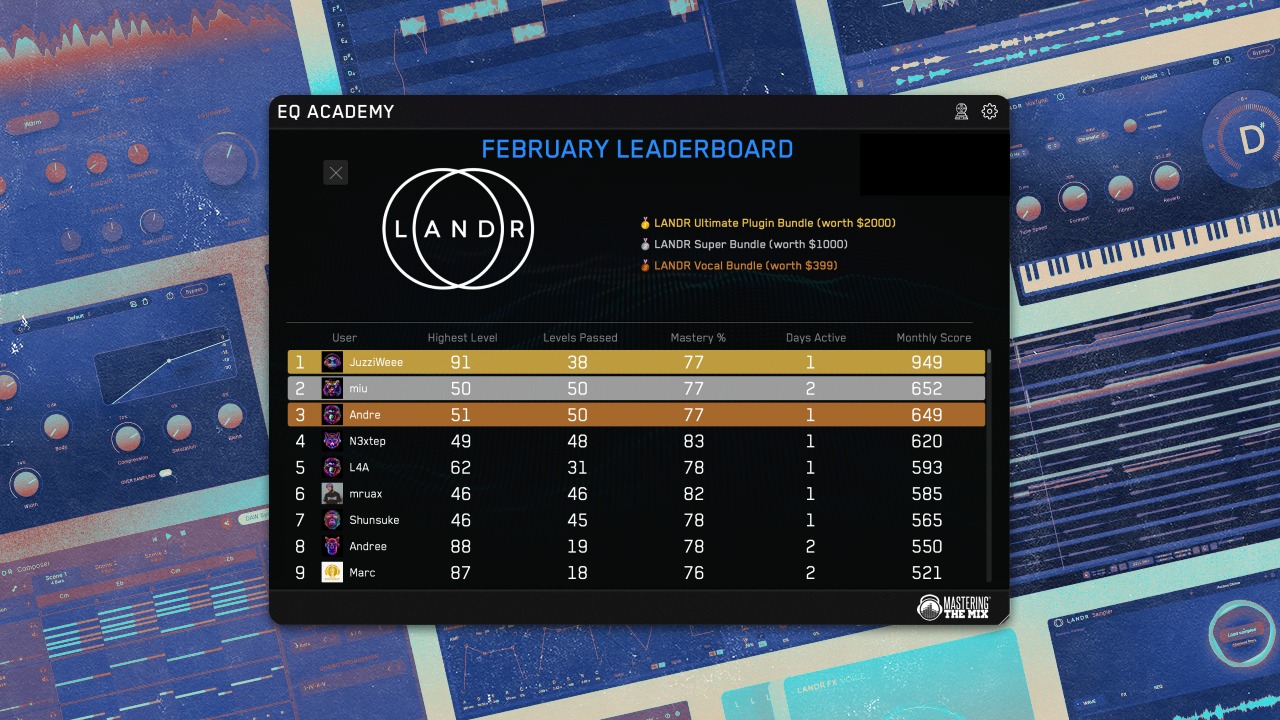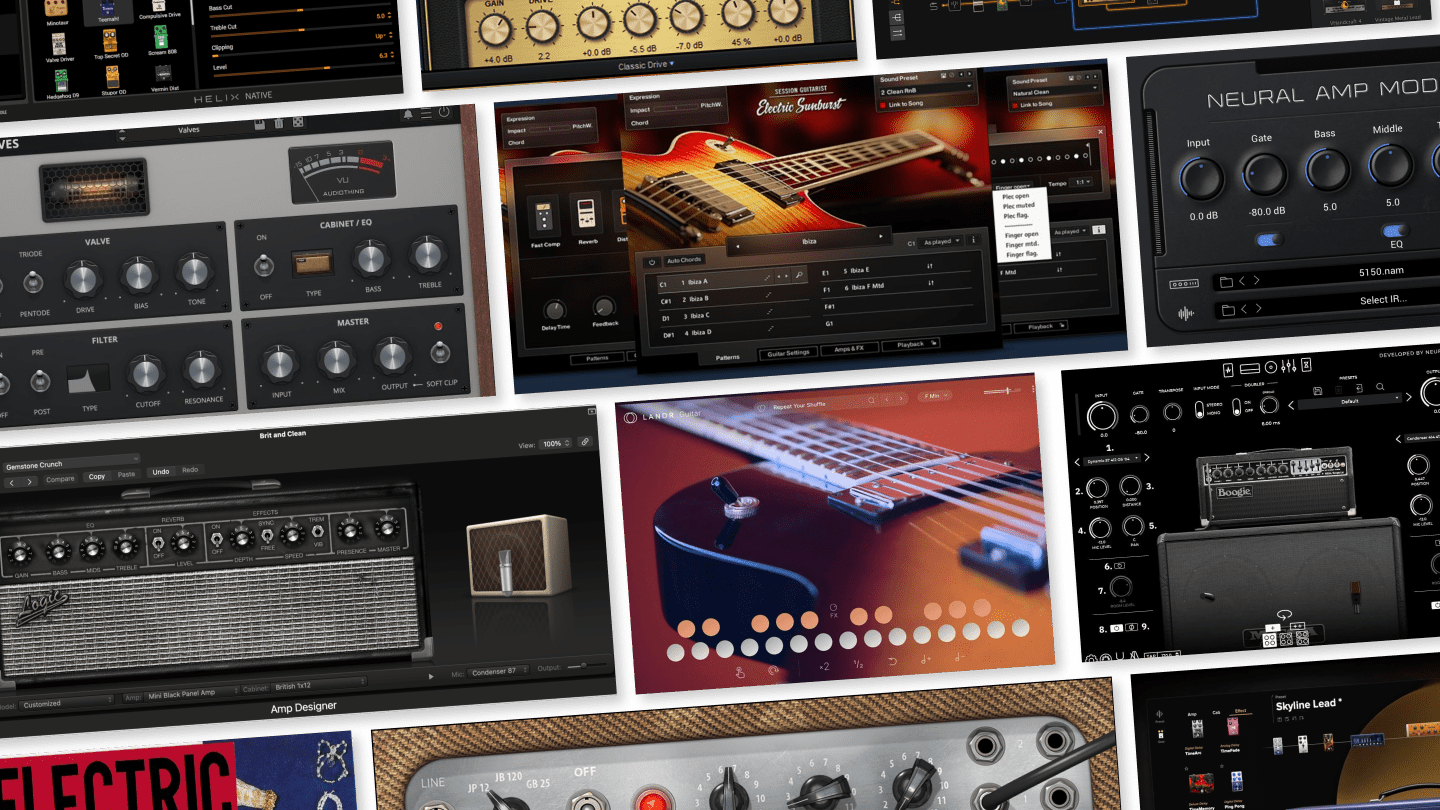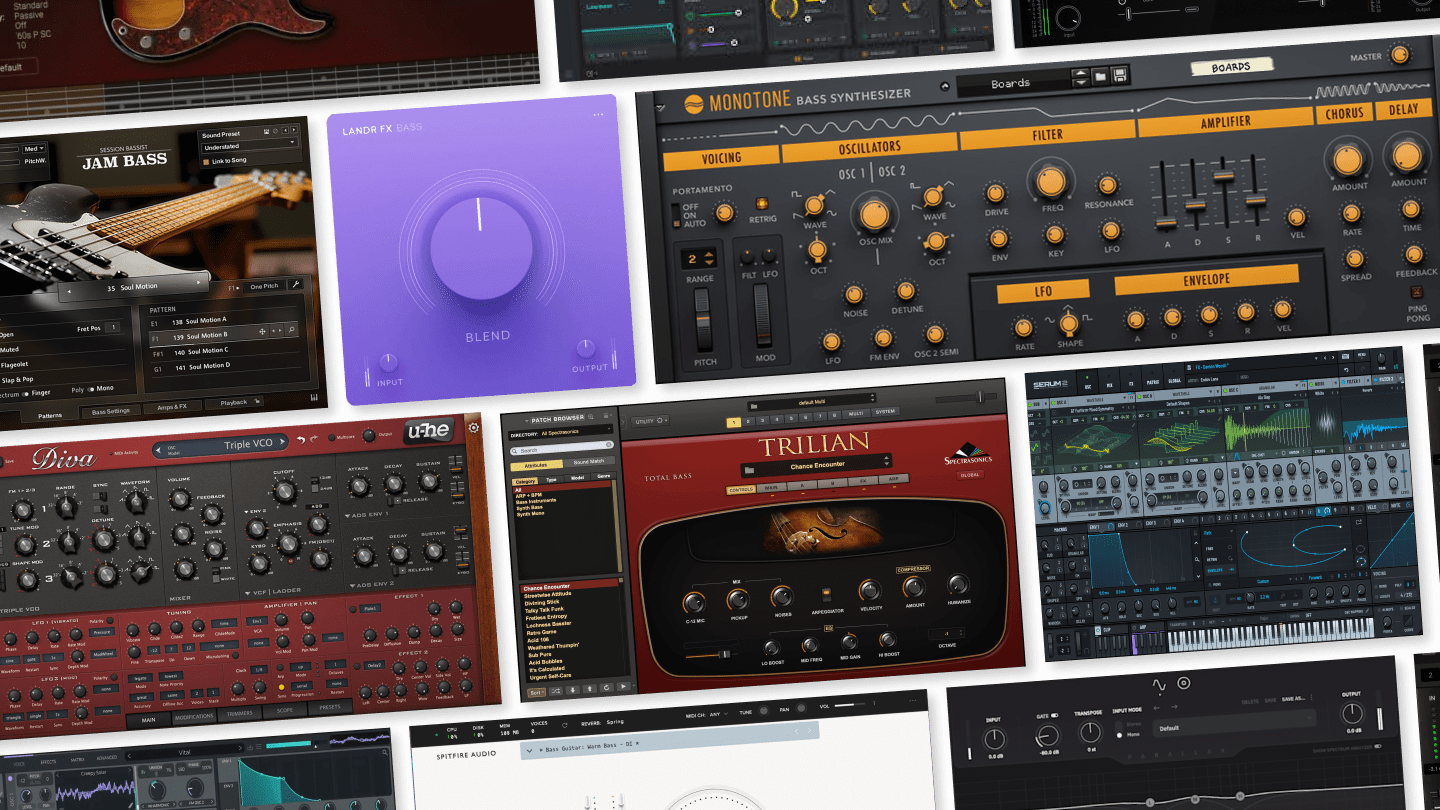
The 7 Best Synths for Beginners at Any Price Range
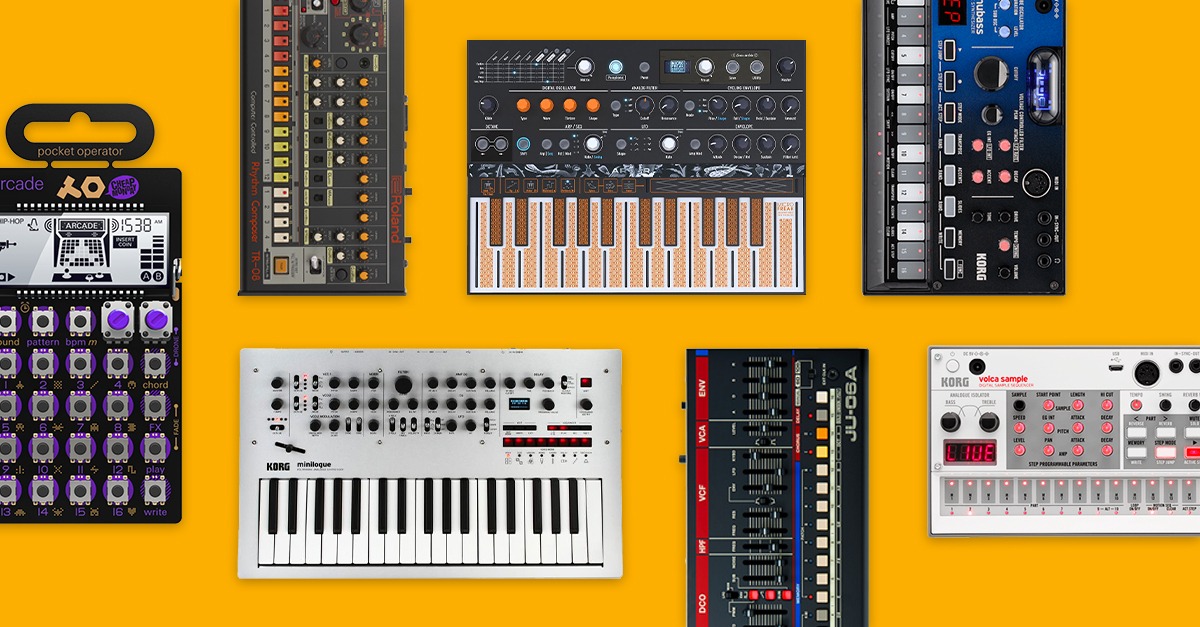
Getting your first synth is always a big step.
Sure free synth VSTs open infinite possibilities but the DAW screen and keyboard is a big limitation that sometimes kills creativity.
Hardware synths are so inspiring—hearing an analog sound change as you play with real knobs is fun and also helpful for learning how electronic sound works.
Plus, hardware synths are much easier to use in collaborative contexts, especially if they’re portable.
But finding the perfect synth to get started with isn’t always easy.
Hardware synths can get expensive quick—plus there’s all kinds of confusing synth terms to wrap your head around.
To get you started on the right foot and help you know what you’re really getting, we’ve compiled our top 7 best synths for beginners.
1. Korg Minilogue
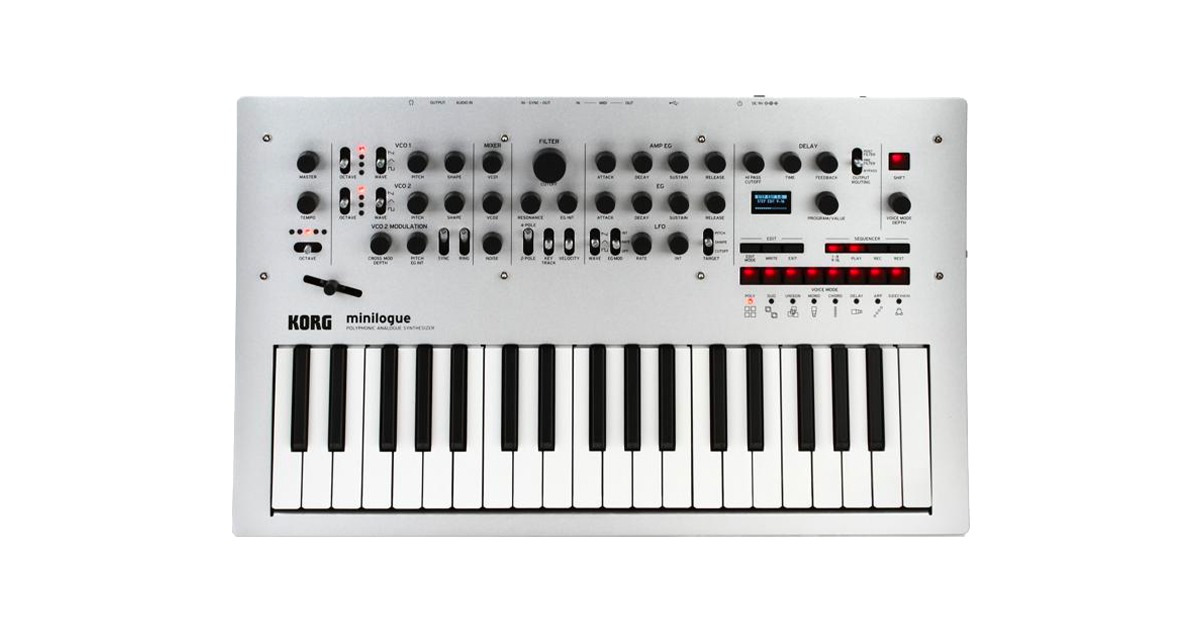
I’ll start this list with one of my favorite modern synths—the Korg Minilogue.
So many artists I know love this synth and the times I’ve gotten my hands on it have been an absolute blast.
There are a few reasons why it’s a great synth for someone who’s just getting started.
Number one—it’s polyphonic, meaning you can play multiple notes at once. That makes it possible to get huge pads that you can use in so many different ways.
Secondly, it has dedicated knobs for pretty much every function.
That’s huge because the most fun way to learn synthesis is by hearing how a sound changes as you play with a certain knob.
Nothing kills your creativity more than a session spent diving through menus. With the Minilogue you won’t be doing that very often.
There’s so much more I could say about this synth—it has a great sequencer, arpeggiator, tons of cool presets, a small footprint, option to change polyphony settings… the list goes on.
At $499 USD, the Minilogue does come in at a higher price than other synths on this list. But if you’re serious about committing to learning and using synths it’s completely worth it.
2. Analog Lab Lite
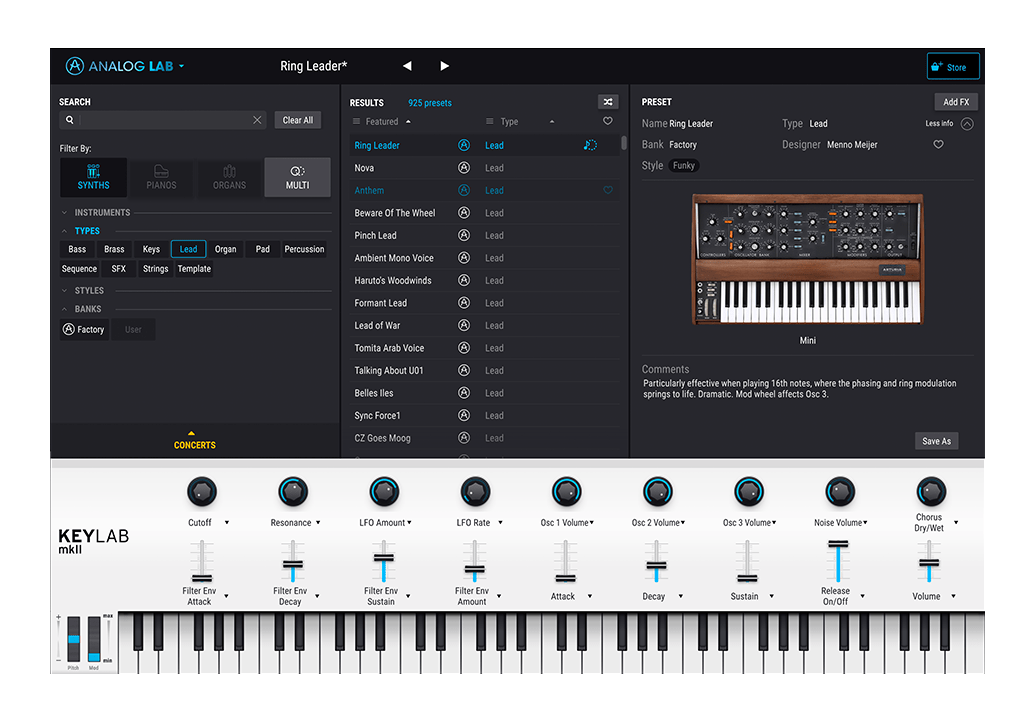
Vintage synths are both complex and expensive compared to their modern counterparts.
So when it comes to software synths that re-create the sounds of legendary vintage synthesizers, Analog Lab Lite from Arturia is the perfect option.
Rather than require the user to make their own patch, the software synth comes with a huge library of preset synth sounds built on the classic synth engines it aims to recreate.
You can easily find great-sounding patches based on the exact signal path of classic synths like the DX-7 or the Juno-8 to name a few.
You can get it for 12.50/month as part of LANDR’s Studio subscription which opens access to Analog Lab Lite alongside a curated selection of power plugins, LANDR’s game-changing AI mastering engine, digital distribution, royalty-free sample marketplace and more.
3. Arturia MicroBrute
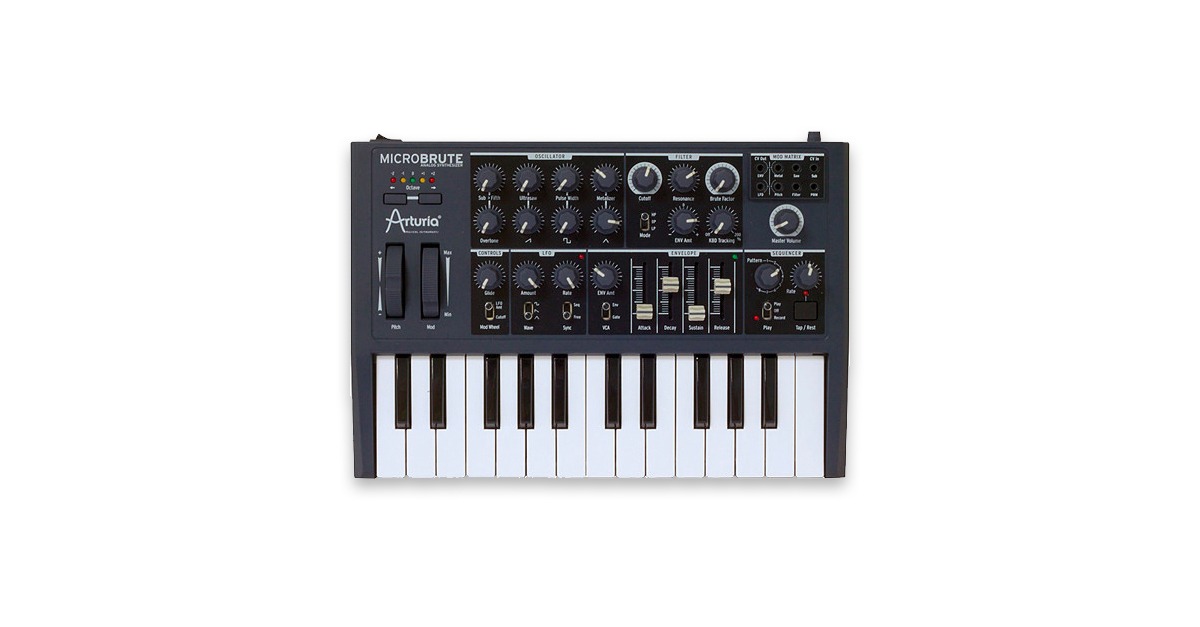
The Arturia MicroBrute is your best option if you’re looking for a very hands-on, analog synth.
This synth has an incredibly classic sound to it, all packaged in a very compact box.
While it’s a monophonic synth (it can only play one note at a time), that doesn’t mean it lacks power.
You get four huge oscillators that can be combined—triangle, square, saw and sub.
Each oscillator comes with its respective signal enhancer—metallizer, pulse width modulation, ultrasaw and overtone.
To mold your sound you get dedicated knobs for filter, amp envelope, LFO and a sequencer.
And if you’re interested in getting into Eurorack down the line, it even has a mod matrix for circuit bending with CV.
The MicroBrute really is the perfect synth if you’re just looking for an instrument with raw synthesis capabilities that’s easy to understand and play with.
There’s no menus to cycle through—just knobs and pure synthesis fun.
At $349 USD, you’re getting a very fair price for something that comes with a ton of synth capabilities right out of the box.
4. Korg Volca Series
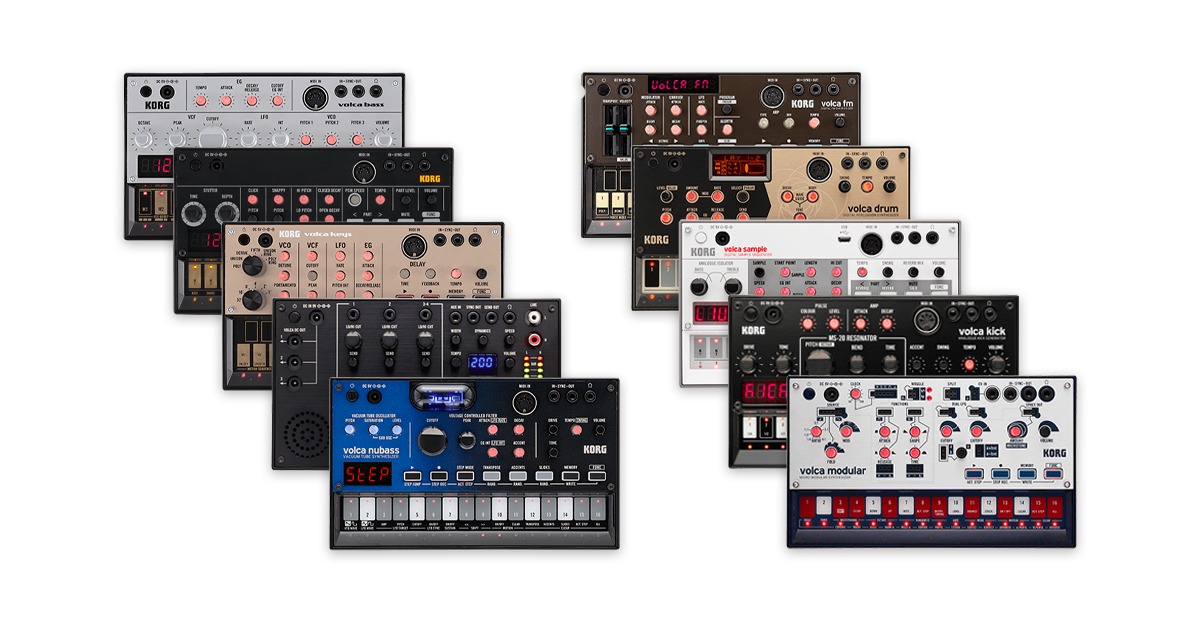
The second most affordable synth on this list is the Korg Volca series.
There are many versions of the Volca and each have their own uses. There’s the Volca Keys, Volca Bass, Volca Modular, Volca NuBass and my personal favourite, the Volca FM.
Each Volca comes as a dedicated synth engine for a specific purpose.
For example, the Volca Bass comes parameter and effects specific to a bass synth, whereas the Volca FM focuses on the characteristics that normally come with an FM synth.
What I love about the Volca series is that they sound really good and come with tons of synthesis capability in a very compact and affordable package.
If you’re missing a specific synth from your setup, there’s likely a Volca variant that will fill the gap.
They easily connect to your setup through either MIDI or CV but you’ll most likely want to control them with a MIDI keyboard.
For a simple, intuitive and compact synth, the Volca series synths are absolutely something to check out, especially at a $149 USD price tag.
5. Roland Boutique Series
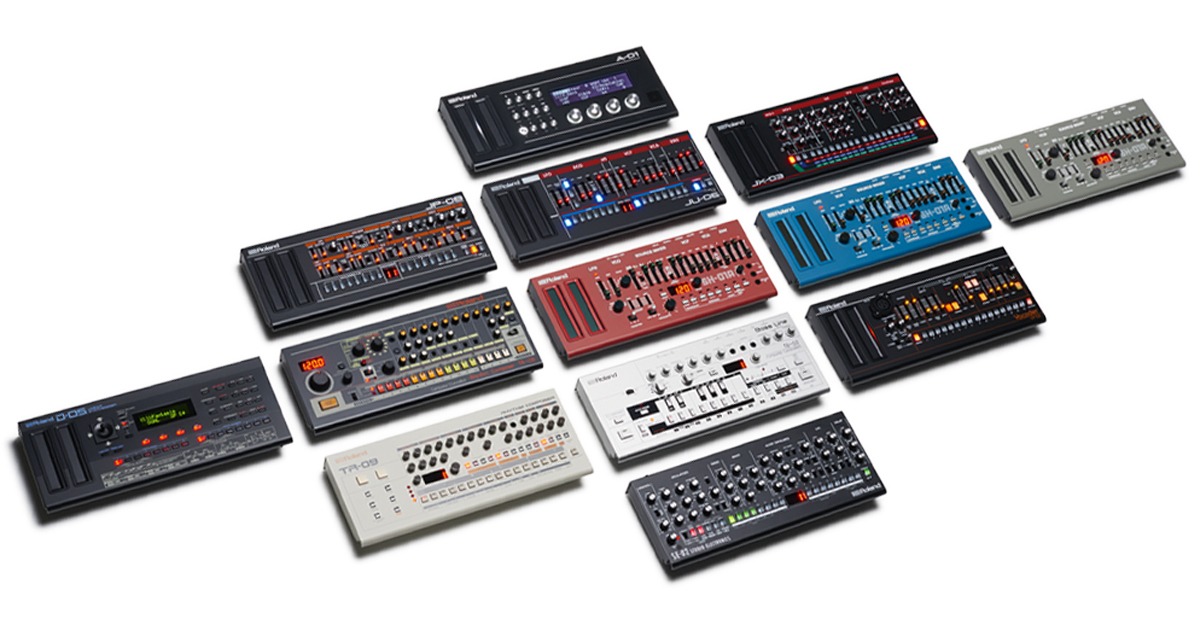
Roland is well known for designing several synths that defined a generation of music. Classic synths like the Juno-60, the SH-101 and the TB-303 come to mind.
You may want to get these classic sounds in your tracks, but these vintage synths are hard to find, difficult to maintain and are often quite expensive.
That’s why Roland’s Boutique Series is so cool, it’s a handful of compact synths that re-create the sounds of their classic vintage counterparts.
What you get with each boutique synth are all the sounds, knobs and effects that came with their original vintage inspiration in a small box that’s easily controlled with MIDI.
Yes, you’ll need to buy an external MIDI keyboard, but if you’ve already been playing with synths in your DAW you probably already have one.
The Boutique line does come at a boutique price; each synth goes for around $499 USD.
But considering how much vintage Roland synths go for on the used market, you’re getting a fair deal.
6. Ujam Usynth Core
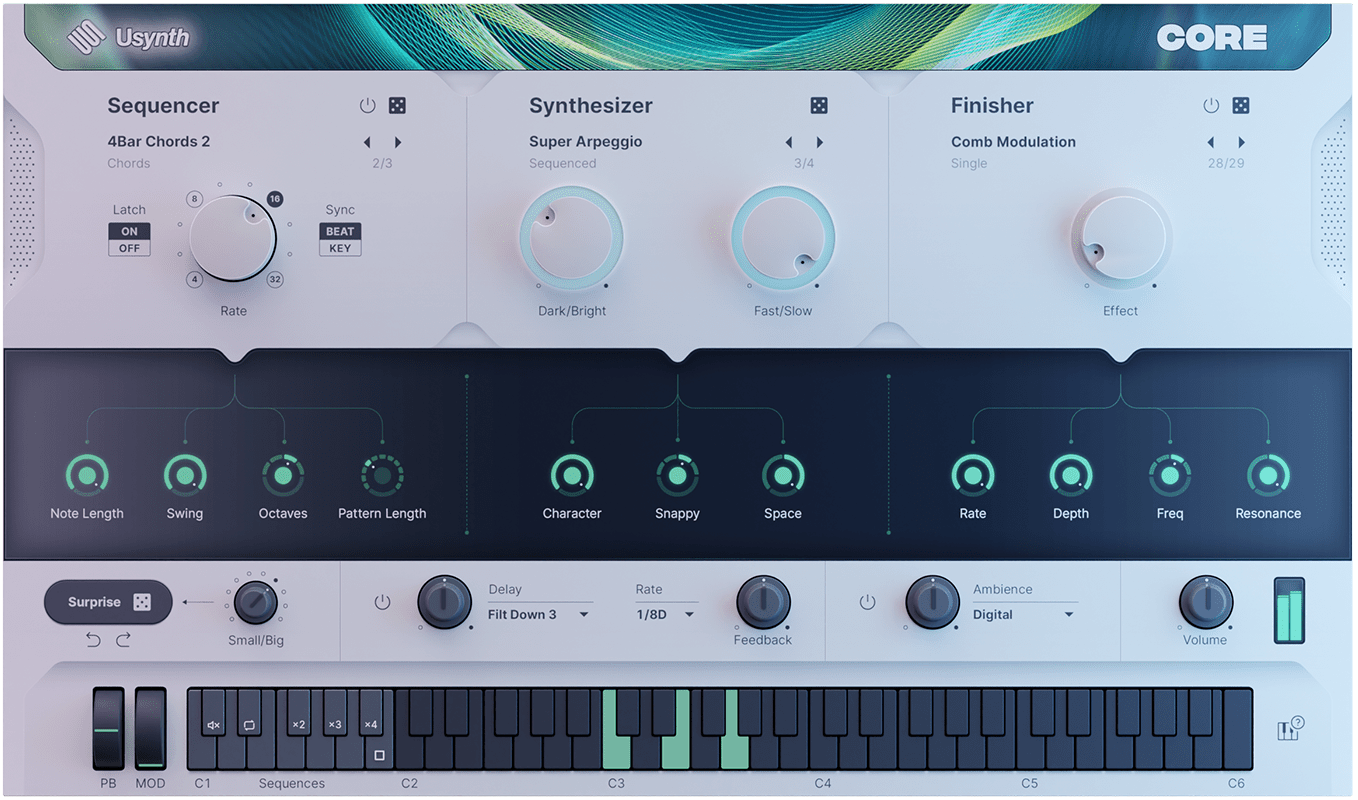
Here’s a very simple software synth that comes with an intuitive interface anyone can pick up and start making sounds.
USynth Core is built on a meticulously engineered synth engine, but despite its high quality, the synth comes with a decidedly simple interface.
The simple plugin makes it easy to start browsing its 1000s of professionally crafted patches that are easily tweakable.
🧠 Hot tip
7. Teenage Engineering Pocket Operator Series
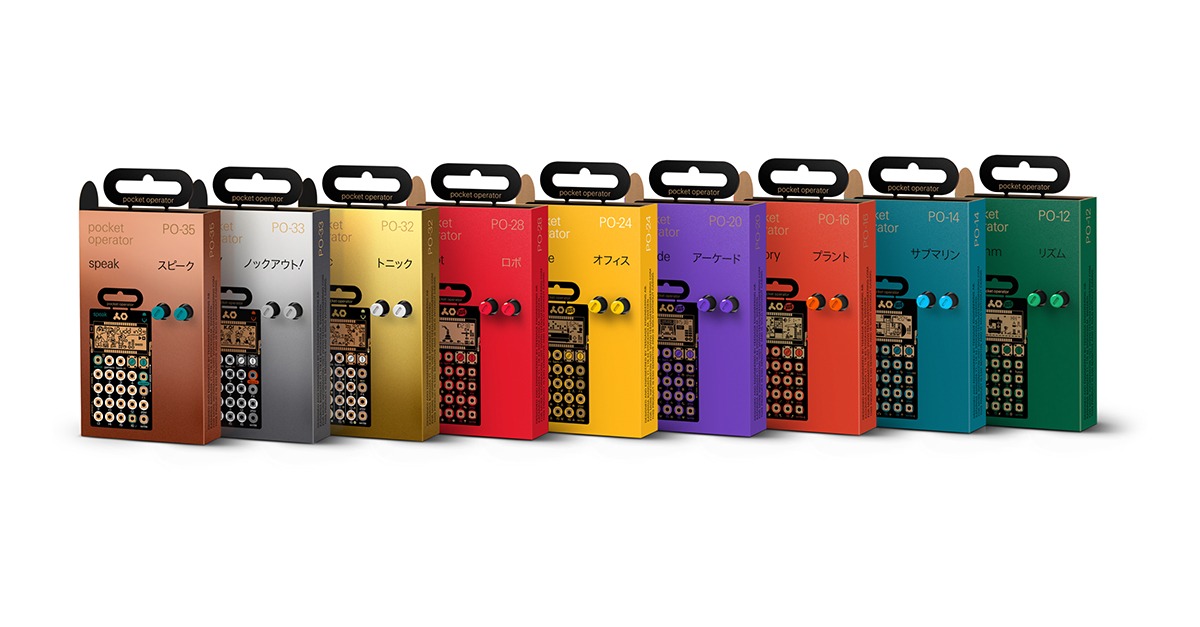
If you’re looking for an affordable way to have fun making weird sounds by playing with raw synthesis, Teenage Engineering’s Pocket Operator is definitely something to check out.
The Pocket Operator isn’t like any other synth on this list. There’s no keyboard and it’s about the size of a credit card—but that doesn’t mean it won’t pack a punch.
Essentially, the synth is built into a very simple circuit board that’s controlled by an array of buttons and knobs.
There are several variants of the Pocket Operator, each having their own and synthesis qualities.
The exact function of each variant of the Pocket Operator is hard to describe, though you’ll find a sub synth, drum synths, sequencers, voice modeling synths, samplers and more.
The point of the Pocket Operator is not to obsess over what specific duty you want your synth to perform—rather, this is a synth that’s purely intended for fun and experimentation.
Starting at an unbelievably low price point of $49 USD, you’ll be smiling as you eke out strange and cool sounds from your new synth.
Gear guides, tips, tutorials, inspiration and more—delivered weekly.
Keep up with the LANDR Blog.
